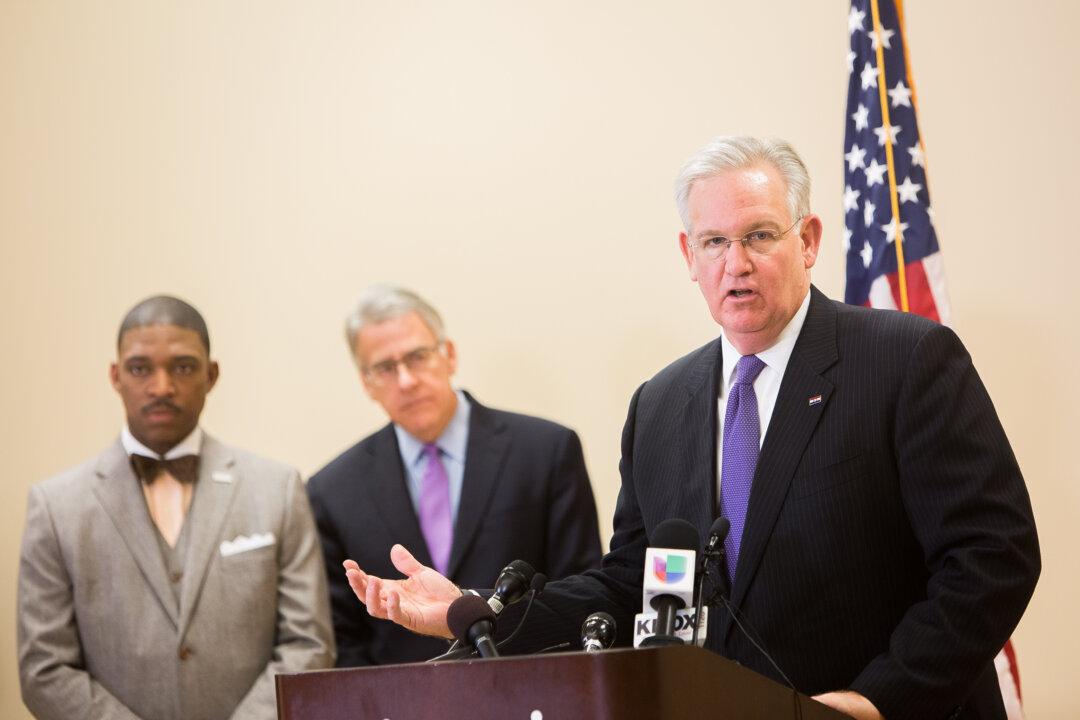Missouri Governor Launches Ferguson Commission (Video)
ST. LOUIS, Mo.—Missouri Governor Jay Nixon took to the stage at the Missouri History Museum on Tuesday to formally launch the Ferguson Commission against a backdrop of growing tension over the impending grand jury announcement.

Missouri Governor Jay Nixon at a press conference on Nixon's announcement of formation of a Ferguson Commission in Missouri History Museum in St Louis, MO, on Nov. 18, 2014. Petr Svab/Epoch Times
|Updated:



